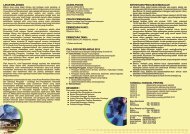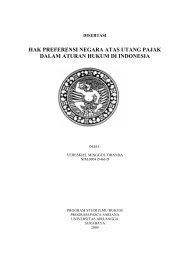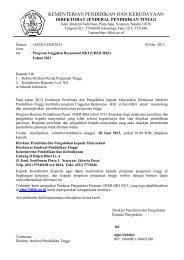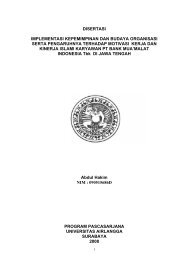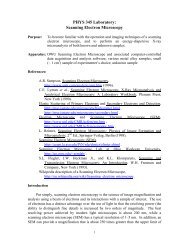Nietzsche's Naturalistic Ethics - UNAIR | E-Book Collection
Nietzsche's Naturalistic Ethics - UNAIR | E-Book Collection
Nietzsche's Naturalistic Ethics - UNAIR | E-Book Collection
Create successful ePaper yourself
Turn your PDF publications into a flip-book with our unique Google optimized e-Paper software.
guilt, that is that “the price we pay for our advance in civilization” (Freud (1961), p 97). 183. Morality Naturalized3.1 Ressentiment, then, is a damaged state of the mind that arises through forced internalization ofaggressive instincts accompanying the socialization of recalcitrant individuals accustomed to livingwithout a tight communal structure. Ressentiment brings about the slave revolt in morality that turnsthe world into a “madhouse” (GM II, 22). The mechanics of that revolt do not concern us. Sufficeit to mention that Christianity arises through the struggle between the two types of ressentiment(slaves and priests) and the type of those who turned out well (die Wohlgeratenen – in GM I, themasters), and that other moral theories emerge from Christianity as feeble attempts to reconstructbits of the Christian sittliche Weltordnung without endorsing its argumentative keystone, the notionof God. 19 Section 2, then, identifies a state of mind that gives rise to a class of moral codes Nietzscherejects. Yet on precisely what grounds does he do so, given that he is aware that a thesis about theorigins of X does not entail that X has a certain value (cf. GM II, 18)? We do not address thisquestion systematically because it has already been discussed extensively. Yet there is another andequally important question that arises at this stage, namely, whether Nietzsche’s speculative historyof morality offers an account of moral codes that are not to be rejected. This section shows that hedoes. However, after discussing this matter here and another question in section 4, we return to the18 In chapter VIII of Civilization and Its Discontents, Freud writes that the sense of guiltis “the most important problem in the development of civilization” and that “the price we pay forour advance in civilization is a loss of happiness through the heightening of the sense of guilt”(Freud (1961), p 97). What is not entirely clear is whether the kind of guilt that Nietzschethought can be overcome coincides with what Freud thought was the price we pay forcivilization.19See Risse (2001), section 5.17




